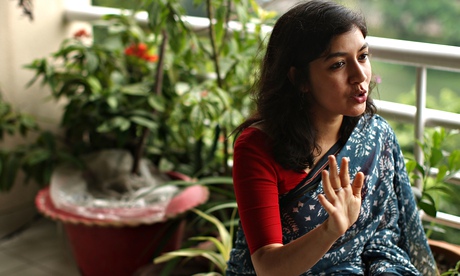
This book records the author’s adventures over the course of a year in which she read a book from every country in the world. It is a personal survey of contemporary literature and how it relates, or doesn’t, to national identity.
It is also the story of a blog (ayearofreadingtheworld.com) that reveals the cybersphere in its best light: a forum for sane, intelligent debate. Morgan’s project attracted comment, argument and suggestions from across the globe. Setting herself a weekly target of reading and blogging about four books, she had to fit the work around a full-time job, and her passion for the task sings from every page. “The richness of human variety,” she writes at journey’s end, “had never been as real to me as it was that year.”
Reading the World is structured thematically around topics such as censorship, propaganda and translation. Apropos of the latter, Morgan writes of the difficulties created by “the presence of a third party in the text, crashing the cosy little author-reader tête-à-tête that can make the reading experience so delicious”. Nicely put. I would have liked more on the nature of translation.
Blog and book also cover distortion in the dissemination and availability of literature. In Brazil in 1987, 1,500 books by Anglophone authors appeared in translation, yet over the same period, only 14 books by Brazilian authors were published in English. “A literary world designed by the writers and thinkers of a few nations,” writes Morgan, “is inevitably a space in which the work and influence of many important authors is diminished comparatively.” She shows how hard it is to get published if you live in Palau, and the only “book” she can find to read from San Marino is a 1976 tourist pamphlet.
I liked the way the narrative travelled from Laos to St Vincent in a couple of pages, and I enjoyed the often bizarre nuggets that emerged from Morgan’s immersion. The two most cited western creations that cropped up during a year reading the world? Sex in the City and Ikea. That said, there are problems. In an attempt to generalise, the prose can veer into the banal: “Popular culture is so ubiquitous and homogenous that it’s a joke.” There are also errors. A single page contains three references to French author Raymond Querneau. This must be Raymond Queneau, whom readers of my generation will remember for Zazie dans le métro.
The crucial list of the author’s book choices comes at the end, as a kind of appendix. The world consists of 195 or 196 countries at present, depending on whether you count Taiwan (Morgan does). The function of lists such as these is to invite debate. Morgan’s UK choice is a book written in Welsh, and America is represented by Neil Gaiman, who is British. Some selections are obvious – who was she going to pick for Albania except Ismail Kadare, and who from Bangladesh except standout contemporary novelist Tahmima Anam? But Martín Kohan for Argentina? Reading the World is a treasure trove of new discoveries, and it is the smaller nations that beguile – anyone read a book from Vanuatu lately? The final list sent me to Uzbekistan, for example, and Hamid Ismailov’s The Railway, brilliantly translated by Robert Chandler. Morgan could have included more on the pleasures of the texts themselves.
The central idea here is perhaps more suited to a blog than a book. It is an ongoing, open-ended discussion about literature that benefits from input from others, and which develops its own threads and arguments organically. That said, those interested in the interface between nationality and writing will enjoy Reading the World.
Reading the World is published by Harvill Secker (£16.99). Click here to buy it for £13.59

